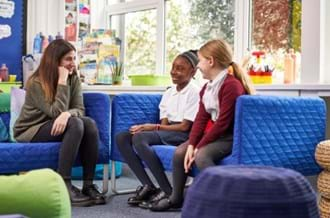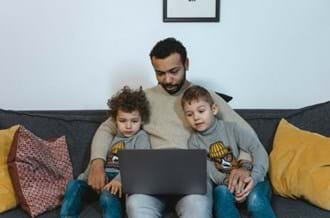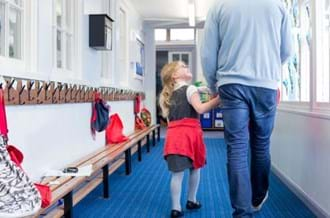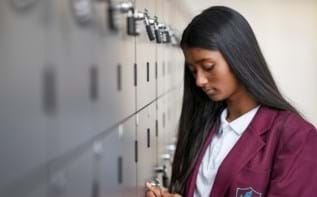6 ways to cope if you’re feeling anxious
6 ways to cope if you’re feeling anxious

Dr Julia Clements
Principal Educational Psychologist – Julia has worked with children, young people, schools and families for 28 years. Originally a teacher, she trained to be an Educational Psychologist in 1996. She has worked in mainstream schools, special schools and pupils referral units (PRUs), and joined Place2Be in 2013.
Place2Be’s Principal Educational Psychologist, Dr Julia Clements, shares some tips on how children and young people can cope in moments of feeling anxious.
It’s perfectly normal to feel anxious from time to time. Anxiety is our body and mind’s natural response to a situation we are not sure about or feel threatened by. Feelings of anxiety may appear, for example, when we:
- have upcoming exams
- are due to change schools
- are having problems with friends or family.
Although it might not feel very good at the time, anxiety is 'doing its job' as it helps alert us to do something about the situation, for example, to get revising! When the situation is resolved (for example, we have sat our exams or have sorted out an argument with a friend), we usually feel less anxious.
However, sometimes our anxiety hangs around for too long, keeping us alert when no threat is present. This is when anxiety can start getting in the way of our everyday lives and the things we enjoy.
We've suggested some things to try if you feel like your anxiety is starting to get in the way of your everyday life. You can read our tips below or download our printable tipsheet.
1. Name it to tame it
It can be useful to know how anxiety shows up for you. It might be that you get butterflies in your stomach or feel sweaty or tongue-tied. In these moments, it can be useful to say (aloud or in your head): 'oh, hello, anxiety, you’re here to let me know you think something might threaten me – thank you'.
2. Remind yourself of all the times you’ve overcome anxiety in the past
Think back to a time when you’ve felt anxious about something but eventually overcame these feelings. For example, if you’re feeling anxious about returning to school after the weekend, think back to when you overcame these feelings by going to school. It can sometimes help by saying something like: 'thanks, anxiety, but I’ve got this!'.
3. Tell a friend or a grown-up
Think about whether you can tell a friend or a grown-up at home or school. Everyone experiences anxiety from time to time, and people are there to help you, so it’s important to reach out and connect with others. It could be good to share things that help you to feel less anxious – and even to practise some of them together.
4. Get active
When we feel anxious, our bodies get ready to cope with something that may threaten us. This is called the 'fight or flight' response. Our hearts beat faster, we sweat more, and our muscles tense. To release these feelings, it often helps to do something active. You may want to go for a walk, play football with friends, or go swimming.
5. Practise strategies that work well for you
Try different strategies that may help you to manage your anxiety. Finding and practising what works best for you can help reduce your anxiety more quickly.
Have you tried these tips and still feel overwhelmed by your anxiety? Then it's important to tell your parent or carer and to ask whether you need to get a GP appointment.
If you're feeling overwhelmed and need to talk:
- Text CONNECT to 85258 for free to speak to Shout
- Call 0800 1111 to speak to Childline, or visit childline.org.uk for their free online chat
- Visit place2be.org.uk/help for more advice
6. Keep a diary
If you're feeling anxious, writing some of your feelings down in a diary or on your phone can be helpful. Make notes of things that you find helpful or seem to make you feel worse.
Download our anxiety tipsheet for young people
Other resources you may find useful
News & blogs

Uniting health and schools to improve mental health
Read Place2Be Chief Executive, Catherine Roche's, thoughts on uniting health and schools to improve mental health.
Read more
Social media, my children and me
Place2Be's Programme Leader for Family Work, Judah, explores how he navigates technology and social media with his children.
Read more
Fostering the power of relationships
Celebrate the power of relationships to transform the lives of children and young people in foster care.
Read more



